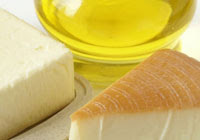As a runner it is important that you keep your body fueled with the right nutrients and vitamins. Runner's burn a high number of calories in their training and therefore need to take in more carbohydrates and proteins than non-runners to be able perform well.
Carbohydrates
Carbohydrates are the best source for endurance runners as it help the body to store, preserve and replace muscle glycogen (the body's of energy source). A low level of glycogen will result in fatigues or low levels of energy on race day. Once all energy sources have been depleted, the runner is of risk to 'hit the wall'.
Therefore, before you tackle the all important race day, ensure you increase the overall carbohydrates intake 2-3 days before race day and reduce fat and protein.
Proteins
Protein helps to build and repair damaged muscles and other tissues. During long distance runs, the body uses low amounts of protein for energy, therefore it is not necessary to increase the intake before a race. Ensure to stock up on your protein level after long runs though, with either protein shakes or simply a nutritious recovery meal e.g. eggs and toast. Don't forget to replenish your hydration level too! If you are reducing your calorie intake in order to lose weight, don't do it in your recovery meal!
Fats
During long endurance runs, your body will access the fat stores to fuel your body for exercise. Athletes who are training for endurance help their body's ability to burn fat as fuel. Ensure to keep your intake to no more than 30% and choose healthy fats such as olive oil, nuts and avocados.
Hydration
It is not more than a myth that everyone should drink at least two liters a day. Our daily drinking requirements depends much more on gender, body weight, weather conditions and the amount of exercise we do on a daily basis. Also, the body can get its water supply from food and your metabolism. General rule for runners is though: The further and faster you run, the more you sweat; so replenish when needed! Many runners rely on the power of sports drinks. Sports drinks often have high sugar contents and provide fuel as well as fluids. However, it is only recommended for long runs to avoid a counterproductive effect on your calorie intake.




Very interesting post, Doris. Any nutritional tips for short distance runners?
ReplyDeleteHi Lia,
ReplyDeleteIt depends very much on your overall goal. If you run for fun and simply to keep fit, ensure you stick to a balanced diet with your recommended 5 fruits and veg a day. However, if you intend to lose weight with running, you should cut down on your daily calorie intake. I found a really interesting article on how to calculate a calorie intake that's right for you: http://therunningbug.co.uk/training/food-and-weight-loss/b/weblog/archive/2011/09/13/calculate-your-calorie-needs.aspx
Also, experts say that your body stops burning calories after exercising for more than an hour, so shorter runs are more beneficial for weight loss.
Hope that helps!
Doris